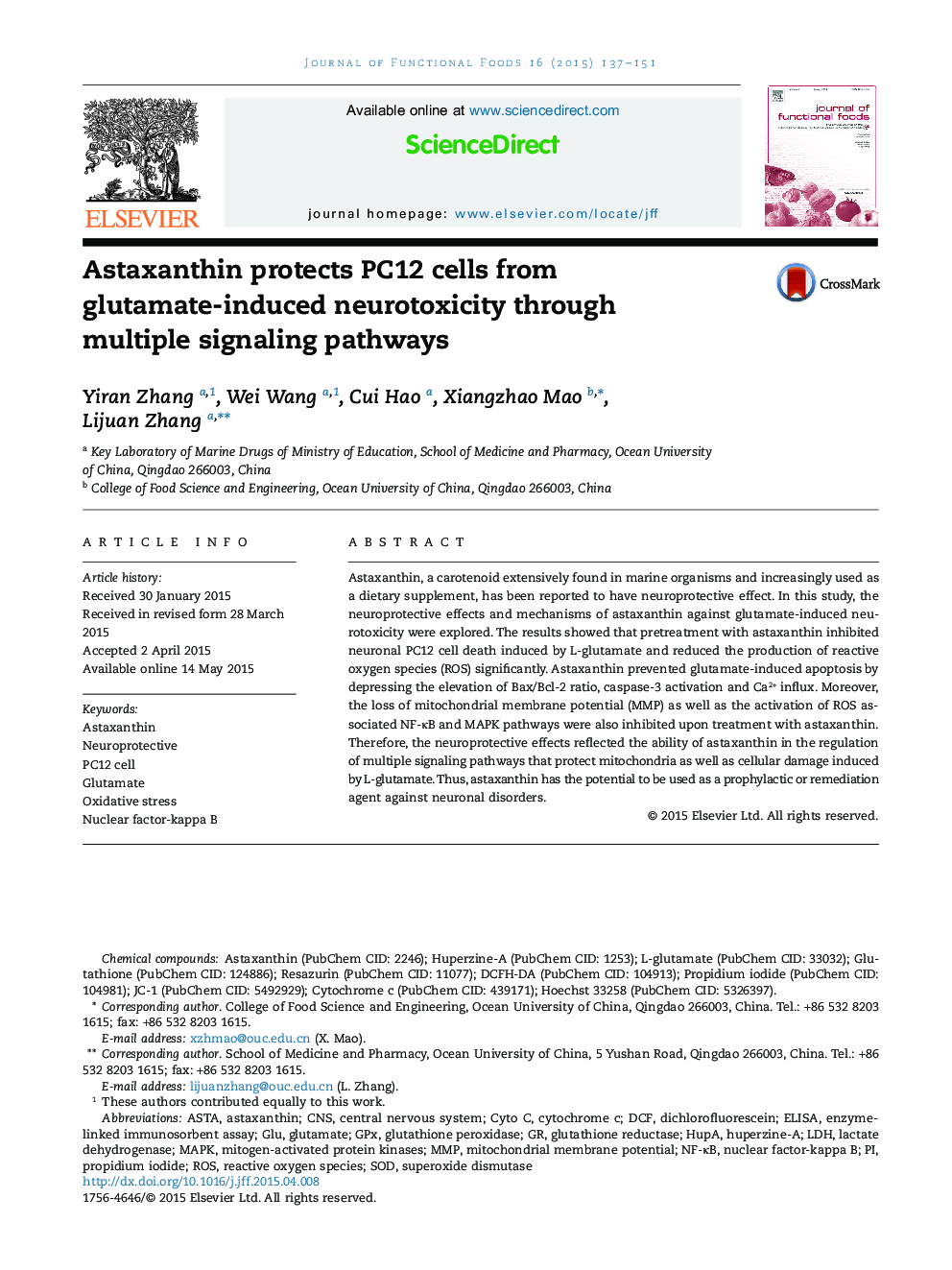| کد مقاله | کد نشریه | سال انتشار | مقاله انگلیسی | نسخه تمام متن |
|---|---|---|---|---|
| 1219859 | 1494548 | 2015 | 15 صفحه PDF | دانلود رایگان |

• Astaxanthin inhibited the L-glutamate cytotoxicity via multiple signaling pathways.
• The LDH release and ROS production were reduced.
• The activities of antioxidant enzymes SOD and GR were enhanced.
• ROS associated NF-κB and MAPK pathways were down-regulated.
• Bax/Bcl-2 ratio, caspase-3 activation and Ca2+ influx were depressed.
Astaxanthin, a carotenoid extensively found in marine organisms and increasingly used as a dietary supplement, has been reported to have neuroprotective effect. In this study, the neuroprotective effects and mechanisms of astaxanthin against glutamate-induced neurotoxicity were explored. The results showed that pretreatment with astaxanthin inhibited neuronal PC12 cell death induced by L-glutamate and reduced the production of reactive oxygen species (ROS) significantly. Astaxanthin prevented glutamate-induced apoptosis by depressing the elevation of Bax/Bcl-2 ratio, caspase-3 activation and Ca2+ influx. Moreover, the loss of mitochondrial membrane potential (MMP) as well as the activation of ROS associated NF-κB and MAPK pathways were also inhibited upon treatment with astaxanthin. Therefore, the neuroprotective effects reflected the ability of astaxanthin in the regulation of multiple signaling pathways that protect mitochondria as well as cellular damage induced by L-glutamate. Thus, astaxanthin has the potential to be used as a prophylactic or remediation agent against neuronal disorders.
Journal: Journal of Functional Foods - Volume 16, June 2015, Pages 137–151